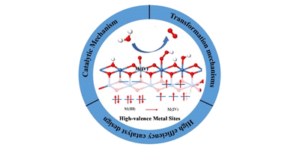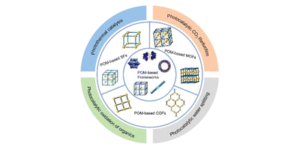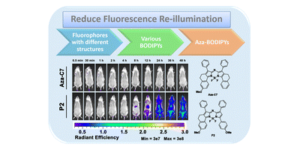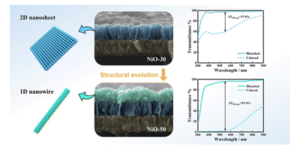Celebrating 25 years of the Key Laboratory for Special Functional Materials at Henan University
Guest edited by Feng Bai, Gang Cheng, Zuliang Du and Guohua Jia
Last year we were delighted to celebrate the 25th anniversary of the Key Laboratory for Special Functional Materials of Ministry of Education at Henan University with a special collection in Nanoscale highlighting the breadth of high-quality work from the institute. We’re pleased to share this collection of research and reviews covering the most recent research progress in a wide spectrum of nanoscience and nanotechnology from researchers currently affiliated with the Key Lab as well as esteemed alumni.
You can explore the collection and read the introductory editorial from our guest editors below, with all articles free to access until the end of April 2024.
Read the collection
Professor Feng Bai, Professor Gang Cheng, Professor Zuliang Du and Professor Guohua Jia served as guest editors for this collection and highlight the history of the Key Laboratory for Special Functional Materials of Ministry of Education and significance of this anniversary in their introductory editorial.
Read the introductory editorial
All of the articles in the collection are free to access until the end of April 2024. Read some of the featured articles below.
Reviews

Transformation mechanism of high-valence metal sites for the optimization of Co- and Ni-based OER catalysts in an alkaline environment: recent progress and perspectives
|

Polyoxometalate-based frameworks for photocatalysis and photothermal catalysis
|
Research articles

Selection of an aggregation-caused quenching-based fluorescent tracer for imaging studies in nano drug delivery systems
|

A layer-stacked NiO nanowire/nanosheet homostructure for electrochromic smart windows with ultra-large optical modulation
|
Nanoscale is a high-impact international journal, publishing high-quality experimental and theoretical work across the breadth of nanoscience and nanotechnology. Our broad scope covers cross-community research that bridges the various disciplines involved with nanoscience and nanotechnology. We are always interested in considering high-quality articles and we would be delighted if you would consider the journal for your next submission, which can be made via our online submission service. All submissions will be subject to initial assessment and peer review as appropriate according to the journal’s guidelines.
We hope you enjoy reading this collection and look forward to showcasing more work from the institute in the future. Please continue to submit your exciting work to Nanoscale.











